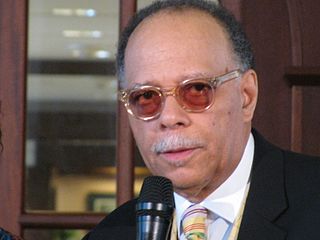A Quote by John Armstrong
This restless world
Is full of chances, which by habit's power
To learn to bear is easier than to shun.
Related Quotes
We feel led to caution . . . against forming the bad habit of incurring debt and taking upon themselves obligations which frequently burden them heavier than they can bear, and lead to the loss of their homes and other possessions. We know it is the fashion of the age to use credit to the utmost limit. . . . We, therefore, repeat our counsel . . . to shun debt. Be content with moderate gains, and be not misled by illusory hopes of acquiring wealth. . . . Let our children also be taught habits of economy, and not to indulge in tastes which they cannot gratify without running into debt.
So that in the first place, I put for a general inclination of all mankind a perpetual and restless desire of Power after power, that ceaseth only in Death. And the cause of this is not always that a man hopes for a more intensive delight than he has already attained to, or that he cannot be content with a moderate power: but because he cannot assure the power and means to live well, which he hath present, without the acquisition of more.
It is easier to kill than to heal. It is easier to destroy than to preserve. It is easier to tear down than to build. Those who feed on destructive emotions and ambitions and deny the responsibilities that are the price of wielding power can bring down everything you care for and would protect. Be on guard, always.
Habit allows us to go from 'before' to 'after,' to make life easier and better. Habit is notorious - and rightly so - for its ability to direct our actions, even against our will; but by mindfully shaping our habits, we can harness the power of mindlessness as a sweeping force for serenity, energy, and growth.
One of the great tragedies of modern education is that most people are not taught to think critically. The majority of the world’s people, those of the West included, are taught to believe rather than to think. It’s much easier to believe than to think. People seldom think seriously about that which we are taught to believe, because we are all creatures of imitation and habit.
I longed for a power of vision which might overpass that limit; which might reach the busy world, towns, regions full of life I had heard of but never seen: that I desired more of practical experience than I possessed; more of intercourse with my kind, of acquaintance with variety of character, than was here within my reach.






































